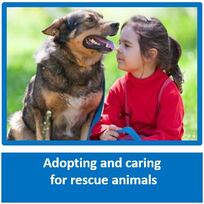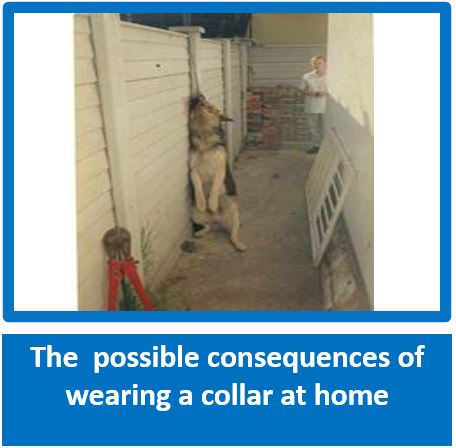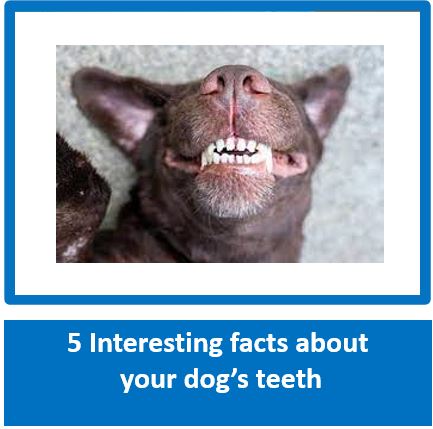
Please visit and LIKE / FOLLOW our Facebook Page and share with family, friends and on your own Facebook page, and ask them to share further – it is only by working together and sharing knowledge and education that we can improve the lives of dogs and assist owners. We do not inundate you with posts – an average of 5 per week, plus one Tip of the Week, and the odd informative post. Thank You!
Babies don't bite - preparing your dog for the arrival of your baby
Courtesy Carole O'Leary Mem B.I.P.D.T hons) Animal Behaviour Consultants of SA
Courtesy Carole O'Leary Mem B.I.P.D.T hons) Animal Behaviour Consultants of SA
An expert offers 12 tips to help your dog accept your baby. It starts as soon as you discover your pregnant

You can never think too far ahead when it comes to fitting the baby in with your fluffy “kids”. Animal behavioural consultant Carole O’ Leary believes that you should start this process when pregnant instead of waiting for the baby to be brought home. Here are a few of her tips:
1. Think ahead
When the baby arrives you will probably have less time for your dog. Get him used to new routines so that he doesn’t associate these changes with the baby. If you think you will walk your dog with the baby try this out with the empty pram. Remember never to attach the dog's lead to the pram as this could be dangerous for the baby.
2. Sleeping
Don’t allow the dog on the furniture and beds. It is best get your dog out of this habit long before baby arrives. Make this change long before the due date so he won’t feel protective over his new sleep place.
3. Eating
You should be able to remove food from your dog at any time. Practice this with food and toys as it will be useful later on when a toddler does it.
4. The nursery
Your dog should be allowed free access to the whole house, but you may decide that you want the dog in the baby room on invitation only.
Start this as soon as possible by closing the nursery door or using a baby gate.
Spend time with your dog in the nursery or with the baby's cot and other things. Your dog should be allowed to explore all the new smells and sounds. Encourage your dog to be quiet and lie down by being calm yourself. Try spending time having a rest, a drink or reading in the baby's room.
5. Exposure to children
If you know someone with a baby or small children ask them over to meet your dog. Allow your dog in once everyone has settled down and stay calm. If there is any doubt as to how he will react you may need professional help. Never endanger or frighten babies or children unnecessarily.
The more your dog sees and interacts with children the more likely he is going to be OK with the new baby.
6. Using a doll
Sprinkle a doll, teddy or cushion with baby powder, or other baby scent, and practice cuddling, carrying and pushing it around in the pushchair. Allow your dog to sniff the doll and use a calm, pleasant tone of voice. Put the doll out of your dog's reach when she is not supervised. Baby toys can be distinguished from dog toys by using this scent method, which will make it easier later on to prevent your dog from destroying toddler's toys.
7. Praise Your Dog
Always encourage and praise your dog when he is near the baby or baby room. Never reprimand him. By doing this, your dog will associate the baby with positive things and not become envious of the attention that he is missing out on. Ignore any unacceptable behaviour and try again the next day.
8. Attention
Your dog must get used to sharing attention, so spend longer periods ignoring her as the due date approaches. Never try to compensate for what is to come by giving your dog more affection before the baby's birth. If you go to hospital your dog will have to cope with at least 3 days of your complete absence, so she should be used to being alone for a couple of hours at a time.
9. While in hospital
Send a dirty nappy and any dirty baby clothes home for your dog to sniff. These should not be given to the dog to destroy, but merely to sniff briefly.
10. Getting home
As soon as you and baby are settled and comfortable (within a couple of hours, not the next day or week), allow your dog to come and meet baby. You should be holding baby and someone should be supervising your dog. If you have more than one dog let them in one by one. Allow your dog to sniff the baby and praise him calmly.
Spend as much time as possible including the dog in your activities with the baby. However, never leave a baby alone with any dog, no matter how safe you think it is.
11. Hygiene
Dogs are not unhygienic, providing they are healthy and well cared for. (Worms can be
picked up from the air as well as from dogs.) To be safe de-worm your dog every 3 months while you are pregnant and afterwards.
Speak to your vet about getting rid of fleas and ticks as these could be harmful to you or your baby. Note that toddlers may be affected by the poison in flea collars or dip on the dog's coat.
12. Aggression
Any sign of aggression should be taken seriously. Get the assistance of an animal behaviour consultant, before it’s too late.
If you have any doubts as to whether your dog will accept your baby, do consider getting in touch with a qualified canine behaviourist.
1. Think ahead
When the baby arrives you will probably have less time for your dog. Get him used to new routines so that he doesn’t associate these changes with the baby. If you think you will walk your dog with the baby try this out with the empty pram. Remember never to attach the dog's lead to the pram as this could be dangerous for the baby.
2. Sleeping
Don’t allow the dog on the furniture and beds. It is best get your dog out of this habit long before baby arrives. Make this change long before the due date so he won’t feel protective over his new sleep place.
3. Eating
You should be able to remove food from your dog at any time. Practice this with food and toys as it will be useful later on when a toddler does it.
4. The nursery
Your dog should be allowed free access to the whole house, but you may decide that you want the dog in the baby room on invitation only.
Start this as soon as possible by closing the nursery door or using a baby gate.
Spend time with your dog in the nursery or with the baby's cot and other things. Your dog should be allowed to explore all the new smells and sounds. Encourage your dog to be quiet and lie down by being calm yourself. Try spending time having a rest, a drink or reading in the baby's room.
5. Exposure to children
If you know someone with a baby or small children ask them over to meet your dog. Allow your dog in once everyone has settled down and stay calm. If there is any doubt as to how he will react you may need professional help. Never endanger or frighten babies or children unnecessarily.
The more your dog sees and interacts with children the more likely he is going to be OK with the new baby.
6. Using a doll
Sprinkle a doll, teddy or cushion with baby powder, or other baby scent, and practice cuddling, carrying and pushing it around in the pushchair. Allow your dog to sniff the doll and use a calm, pleasant tone of voice. Put the doll out of your dog's reach when she is not supervised. Baby toys can be distinguished from dog toys by using this scent method, which will make it easier later on to prevent your dog from destroying toddler's toys.
7. Praise Your Dog
Always encourage and praise your dog when he is near the baby or baby room. Never reprimand him. By doing this, your dog will associate the baby with positive things and not become envious of the attention that he is missing out on. Ignore any unacceptable behaviour and try again the next day.
8. Attention
Your dog must get used to sharing attention, so spend longer periods ignoring her as the due date approaches. Never try to compensate for what is to come by giving your dog more affection before the baby's birth. If you go to hospital your dog will have to cope with at least 3 days of your complete absence, so she should be used to being alone for a couple of hours at a time.
9. While in hospital
Send a dirty nappy and any dirty baby clothes home for your dog to sniff. These should not be given to the dog to destroy, but merely to sniff briefly.
10. Getting home
As soon as you and baby are settled and comfortable (within a couple of hours, not the next day or week), allow your dog to come and meet baby. You should be holding baby and someone should be supervising your dog. If you have more than one dog let them in one by one. Allow your dog to sniff the baby and praise him calmly.
Spend as much time as possible including the dog in your activities with the baby. However, never leave a baby alone with any dog, no matter how safe you think it is.
11. Hygiene
Dogs are not unhygienic, providing they are healthy and well cared for. (Worms can be
picked up from the air as well as from dogs.) To be safe de-worm your dog every 3 months while you are pregnant and afterwards.
Speak to your vet about getting rid of fleas and ticks as these could be harmful to you or your baby. Note that toddlers may be affected by the poison in flea collars or dip on the dog's coat.
12. Aggression
Any sign of aggression should be taken seriously. Get the assistance of an animal behaviour consultant, before it’s too late.
If you have any doubts as to whether your dog will accept your baby, do consider getting in touch with a qualified canine behaviourist.




